#immigrant daughter
Explore tagged Tumblr posts
Text

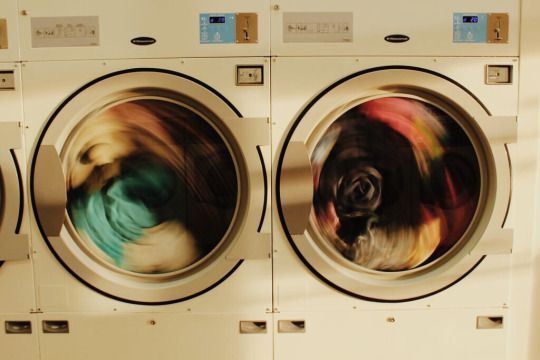
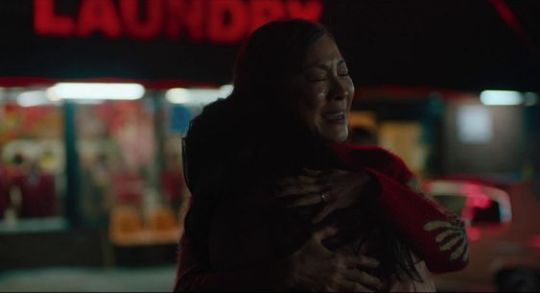
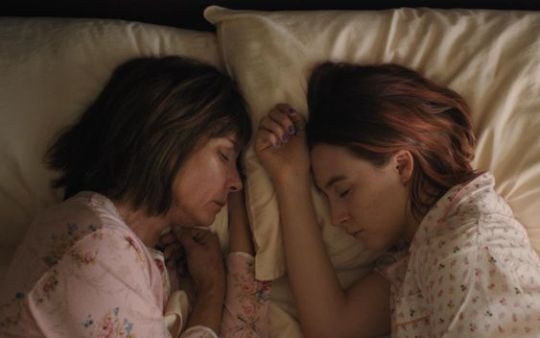


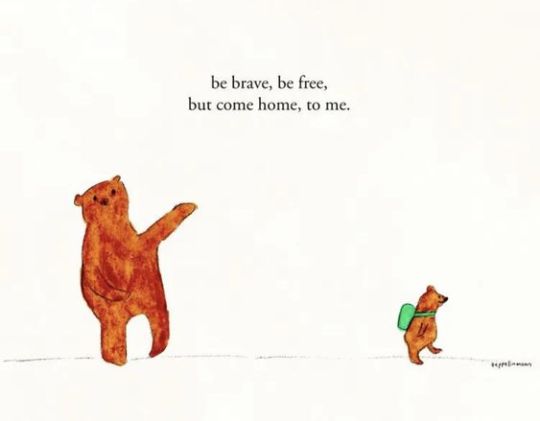
being an immigrant child / growing up + away from your parents
"anak" by freddie aguilar // laundromat photos by @sunflowrrbabe // "everything everywhere all at once" directed by daniel Kwan, daniel Scheinert // "ladybird" directed by greta gerwig // "a letter to my 13 year old self" by laufey // "class of 2013" by mitski // "be brave be free" by zeppelinmoon
‧₊˚❀༉‧₊˚.
#web weaving#first official web weaving post!#growing up#immigrant daughter#words#poetry#poem#aesthetic#growth#progress#parenthood#writeblr#on love#on growing up#on childhood#on mothers#web weave#webweaving#web weavings#spilled poetry#mitski#everything everywhere all at once#laufey#filipino music#musing again
1K notes
·
View notes
Text
being a brown eldest or only daughter really prepares you for what motherhood is like. Which is why so many of us don't want it or delay it so much. We might be the only ones who know what we'd be in for.
That desire to run away or disappear or ceasing to exist? That comes from being overwhelmed from expectations. From being needed by everyone. From obligations and duties toward others first before your own self. That is what motherhood is. And you will absolutely experience that as a mother. You will constantly be needed by your child. You will constantly be touched and hypersensitized in that way. Your day won't start by being about you and your coffee and moments of peace. It's immediate planning. An eldest daughter knows what life of planning is like. We have parented our parents. Being a travel planner, financial planner, retirement planner, our siblings' mentors academic and relationship planners. If you're like me, then you also helped your parents buy their first home and managed and navigated developer contracts. And motherhood is just more of this
173 notes
·
View notes
Text
i visit home
dishes are stacking, windows are smudged, the fridge exhales a pungent aroma upon opening.
it’s not my house, but it costs me something to pretend not to see The Mess.
so my fingers grow pruny from the dampness of the rag and my nostrils burn from the bleach fumes—
it’s all i can offer in place of my aching love.
37 notes
·
View notes
Text
Isabella is so immigrant mother in my mirror. Who gave into viciousness to live, to make it. Who bore children because she was supposed to. And when you ask her why she gave birth to you, she'll tell you it was to survive, longer than anyone else. So give in to despair mija, don't fly too high my little bird, I want to spare you from the pain and suffering. When you finally escape her smothering grasp she doesn't chase after you. Do your best and escape. Because she wanted to love you normally. It was you and we always knew it would be you who'd get over the chasms that your mom couldn't cross. So when you look in the mirror, you know there's part of you that escaped to survive, longer than anyone else. Just like mom.
#studyblr#studyspo#study inspiration#Isabella#tpn isabella#the promised neverland#isabella tpn#immigrant daughter#immigrant mom#immigrant mother
20 notes
·
View notes
Text
Indigencies
My father grew up dirt-poor in a village in India. My grandmother valued education, and with her prompting, he managed to get an engineering degree and an educated wife, coming to the United States.
Alternatively: my mother’s mother was the most hardworking woman in the world, running multiple businesses, doing the housework, and raising her children. As a high schooler, she held an (unsuccessful) hunger strike to promote her right to an education. She passed on that determination to her daughter. Between my mother’s ludicrous work ethic and terrifying ambition, she found a husband with her goals and gained a medical degree in two countries, settling in the United States.
Either way, my mother and father, through luck and hard work, came here with the skills to better this great country. My mother maintained throughout my childhood that there was nowhere to gain success like the US. She worked at a hospital until the administrators determined that an endocrinologist wasn’t profitable enough to justify on staff, at which point she opened her own practice. My father worked at a bank until one of his college friends suggested an entrepreneurial software-producing business, and as such, Multicoreware was born. Both of them brought new jobs to Sunset Hills and provided a necessary service that wouldn’t have existed if they weren’t there.
The word “indigenous” means “native to the land one is living on,” but the term “indigency” simply means “poor.” My family is, under some definitions, indigenous to India, but according to all definitions, we suffer indigence nowhere. We have, in fact, never suffered indigence in our lifetimes. My dad got his education through scholarships, but he did get his education. My mother was even more privileged. Don’t get me wrong, she didn’t have air conditioning or pasteurized milk. She was still wealthy by most Indian metrics, though, and that wealth allowed her to get a degree, which was fundamentally important in getting her green card.
That’s important. Regardless of how you spin their rags-to-riches story, neither of my parents literally started in rags. My father got closer than my mother, but ultimately, neither of them were starving on the street, and there are a lot of people in India starving on the street. Those people don’t end up in the US.
Did you know that not all Asian Americans are wealthy? I don’t mean that literally, obviously some Indians start gambling recklessly or get trapped by a lack of universal healthcare. I mean that “Asian American” is a demographic so large as to be useless. If you break down the overall group, you’ll find we’re harshly divided between people who immigrated like my parents and refugees, making up the top 10% and bottom 10% of US earners. Isn’t that funny?
My family’s from Missouri, Saint Louis specifically.
In the meantime, my parents bought a suburban house and had two daughters. Becoming a doctor or engineer is well-known in India as a ticket to success, but my parents taught my sister and I to value the opportunities this country had, so we followed our hearts instead. My sister bounced around for a while, studying psychology and sociology, but she settled on educational nonprofit work, helping kids in India succeed. She works in fundraising, convincing potential philanthropists that their cause is a good enough one to sponsor. My sister is, I’ve been told, very good at her job; listening to all the office politics is always amusing. I became an ecologist and conservationist. It’s less of a non-sequitor than you’d think: my family adores national parks and hiking, and there’s something so fundamentally beautiful about this continent. Come to the Midwest: we have the best thunderstorms in the world. My job is something I would never get to do in India, and it’s good chunk of the reason I’m so grateful for this country.
On a related note, I said that indigenous means “native to the land one is living on,” but it is more complicated than that. Indians living in India, for example, are rarely called indigenous. It’s a specific kind of colonization that creates the concept of indigeneity. The settling of other people on your land is a necessary step of the process.
Even if that wasn’t true, I wouldn’t be indigenous anywhere. I was born in Missouri: even if I return to India, I will be an American returning to the place of her forefathers, not an India returning to their home country.
There’s actually a thriving Tamilian community in Saint Louis. That’s the reason my parents chose to move there. Of course, by the time I was old enough to really notice social atmospheres, we’d ended up alienated from said community through common drama, so that didn’t affect me much.
By the time I was born, my family had established a pattern of traveling to visit India every year or every other year. Though it is important to understand your roots, we go there for more practical reasons. My grandparents deserve to know me, and my mother runs a charity organization.
The organization has warped over time. At first, we helped fund a school. Then, my mother began running diabetes clinics for rural Tamilians. Nowadays, my mother has been campaigning for an increase in millet-based diets instead of white rice-based diets.
I don’t think either of my parents want to move back to India. It’s still important to take what we’ve learned in the US and return it to India. We owe the country that much.
The result of all of this is that it’s accurate to say my family is from a colonized culture, not an indigenous one, but I am from neither. Within the US, we are primarily aligned with a colonizer culture, enjoying its luxuries and upholding its narratives. I’ve been saying for years that I am more American—using “American” to mean “from the United States,” which is its own can of worms—than I am Indian. I was born in the US, and I was brought up here. These are the opportunities that I have most enjoyed. This means that, regardless of my genuine love for this country, I am a colonizer that has put down roots.
I wonder, sometimes, if I would have connected more with India if I connected more with the community in Saint Louis. I probably would have, I think. I barely know how to celebrate Diwali, and I don’t know any of our other holidays. I’m Hindu in a lazy, abstract way. I don’t speak Tamil.
On the other hand, I’m Indian enough that I don’t get to be American, not all the way. I’m not a pie chart—70% American, 25% Indian, 5% something else—but I might as well have been, the way people used to talk to me.
I’ve gotten something else from our trips to India, though. I’ve knelt in stone temples and before my great-grandmother. I’ve wandered through drip-irrigated farmland and watched my mother bring reusable bags from India because there was nothing like our woven bags in this country. Frugality, sustainability, humility, and spirituality all mean the same thing to me, nowadays. As we were bringing our Western education to our home country, I brought pieces of my home country back to the West.
As an ecologist, this is tricky. In a lot of ways, my field is simply an attempt to gather the knowledge that indigenous people already knew, and we have a bad habit of writing off their credits or overwriting their narrative. On the other hand, my family is from a colonized culture, and there’s a chance my perspective will be worth something because of that. I cannot turn my back on this field. It’s my duty, as somebody who has a chance of understanding the tangles in the connection between culture and conservation, to remain in this field, attempting to help where I can and uplift marginalized voices.
I went to India in high school then again just after the pandemic, and I think I found something worthwhile there. I mean, at first I had to really search for it; I don’t know how my sister finds it so easy to love that country. I really did try, though, and I did find something. I went to this farm vaguely connected to the school my family used to help fund—I don’t think we’re involved anymore, and my mom’s current charity efforts are leaning more chaotic than anything—and I noticed that they were using drip irrigation. After that, I started looking for that sort of thing, and I found it absurdly common. The average Indian I’ve met has no concept of conservation, but they do understand waste and how to avoid it, and often there’s heavy overlap. There are also cultural values surrounding the concept of duty, mindfulness, and practicality that I think really are valuable: I doubt Rama would have much time for fast fashion, prince or no.
As an adult who knows how to look at the world through a cultural lens, I’ve been trying to learn about other culture’s views on conservation as I do my research. UC Davis is trying to include more information on Native American views on sustainability in its curriculum, and I’ve been reading Braiding Sweetgrass in my free time. It’s important to weave scientific methods with indigenous knowledge when promoting sustainability.
Still, I’m worried that I’ll become as complicit, as academia isn’t always built to further true understanding. We have a way of talking as though we have knowledge and indigenous groups have practices, when in reality it’s much more complicated than that.
After that, I started putting real effort in, and I think I’m doing a good job of it. I read the Gita, which was a very good book, and Sundara Kanda, which really wasn’t. I’ve been wearing churidars the last few years, and I bought a Saraswati statue to put next to my Ganeshas. I started meditating. I learned to make chapathi. How many pieces can you put together before you’ve made one whole Indian?
And I really am trying to take this understanding of why culture is important and use it to reach out to others. Solidarity is really important. Did you know that it’s an Indian who attacked affirmative action most recently, the idiot? How do they not realize that racism chips at us all—
Anyways. I inexplicably started with Judaism—well, not inexplicably, I got guilty when I realized I knew more about Nazis than Jewish people—trying to get a shape of what cultural practices look like in the US. I don’t think I did an amazing job, but there’s only so much you can get from books. After that, I started reading more international authors, which I’m not certain did anything, but I enjoyed The Locked Tomb series immensely, so maybe it’s alright.
Cultural understanding is incredibly important work and, in ecology, time bound time bound. We are embedded in a mass extinction of our own making, and we need to work immediately to prevent everything from getting worse. As such, I’m getting a Masters degree, the a PhD, then I’ll get an entry-level government position and work steadily to—
Of course, leaving academia and moving to direct activism would be the most morally correct thing to do, but I’m not certain I have the personality matrix for it. Perhaps I should invest more of my free time into volunteer work.
Most importantly, I really am trying to understand the Native American perspective on the United States, specifically from within California because understanding one culture well seems better than stereotyping a million, but that’s such a massive undertaking, and I really don’t want to come off too white savoir-like as I do it, and if understanding Judaism from a book is impossible I don’t know why I’m trying with Potawatomi culture, Jesus Christ at least I’ve met a Jewish person before—
It’s not about understanding every culture on earth; I understand that. My curiosity drives me to understand everything, but from most people, all that I have are whispers. An rudimentary understanding of Chi from Iron Widow overlaid with giant mechs and messy polyamory. The Peruvian Sacsayhuaman, meaning vulture feast, after the mass of bodies that lay there after the conquistadors had finished their work. The layer of powder on temples in India, leftovers from the stuff that’s supposed to go on your forehead.
It just feels wrong to know so little about the land I’m walking on. A’nowara’kó:wa means Turtle Island, and according to Braiding Sweetgrass, that’s the actual name for North America. I learned that a month ago.
I kind of hate India, but I know it’s mine. It’s not like the US which I’ve had to claim over and over again. The US had to be imprinted on to me through birth certificates and accents and yelling “I am a patriot!” at disruptive times. I was Indian the moment I was born; the land itself is pressed into my skin.
The land I was born on belongs to someone else. It’ll always belong to someone else. That’s not okay, but it has to be.
The work we’re doing is difficult, but it’s the only practical way to make a difference.
We need a revolutionary change, and soon. Continually spinning my wheels like this is useless.
You know how the word “Indian” doesn’t mean actual Indians in the US? I mean, it might be different nowadays, but when I was a kid, “Indian” meant Native American first. I have, in the 20 years of my life, refused to refer to Native Americans as Indians, even when that was their preference. I don’t care that it wasn’t their fault, that “Indian” was as imposed on them as it was stolen from us. It’s our word.
Well, recently I learned that “Indian” wasn’t created by Indians either. The Greeks saw people living around the Indus River and started calling them Indians, but even “The Indus River” was a Greek term: the original word for it was Sindhu.
That’s not why my parents named me Sindhu. They wanted a Tamil name, and for us, Sindhu means “music,” and music is something transcendentally meaningful. It’s funny: that’s not an Indian thing, I don’t think, but it still feels Indian. All of this feels Indian. When I think of India, I think of grime and exhaustion, but when I think of Indians, I think of bright colors and music and how God connects us to the natural cycle. No wonder their country was named after a river, after music. No wonder I am named after my country.
One of the frustrating things about engaging with culture is that it’s the kind of work that’s never finished. It feels like mental health upkeep: it’s vitally important, and if you ignore it long enough you collapse, but lord is it exhausting. We need to put the work in to understanding each other, and colonialism is so baked into the fabric of the US that I don’t think we can progress without addressing it. That doesn’t make it easier to lose and gain appreciation for your country on loop. When an immigrant assimilates, how do they differ from the colonizers that surround them?
I don’t think I’ll ever be happy with my relationship to India. There’s always something more I could be doing, another revelation on the horizon. I don’t think I’ll ever be happy with my relationship to A’nowara’kó:wa either. I just live on it.
#Indigence means poverty.#This is the best thing I've written for library of babel hands down#i'll almost certainly edit it to make a real piece#fun fact: the color scheme was originally black-red-green but I switched it for the sake of color blind people#this started from a scholarship essay#the gist of which is written in the black text#I do agree with what I said in that essay but I also agree with the other two narratives I put down#Or not agree with precisely#things can be emotionally true without being literally true#colonialism#us imperialism#immigrant daughter#immigration#indian american#tamilian#the american dream is killing me#creative writing#my writing#library of babel#unedited#original works#new writers on tumblr#ecology#i don't want to put anything in the indigenous tag considering im not indigenous#so i guess we'll end it there
5 notes
·
View notes
Text
i hate being fucking pakstani, literally so suffocating. I saw a bunch of white girls on the bus and i almost started sobbing its so unfair. I cant dress how i want, i’m not allowwd to date, be out late, drink or just love at all. Everyone is out having fun and im stcuk with thsi stupid family i dont even wanna be a part of. I just wanna die.
0 notes
Text
“come celebrate
with me that everyday
something has tried to kill me
and has failed.”
― Lucille Clifton
0 notes
Text

Good Morning. Remember to be present and real with your emotions today. Be forgiving of others. Be forgiving of yourself. Remind the important people in your life that you love them.
#morning#good morning#good morning message#good morning image#good morning man#the good morning man#the entire morning#gif#gm#tgmm#☀️🧙🏼♂️✌🏼#america#fascism#america embraces fascism#failing our daughters#women#children#daughters#mothers#sisters#trans community#immigrants#we failed#we failed them#fine#normal#everything is probably fine#just go about your normal life
253 notes
·
View notes
Text
"You weakened me!" By Ambessa is not a declaration of apathy! It is not her blaming Mel! It is when Mel finally learns that her mother isn't apathetic to her, that she isn't disinterested in her fate or disappointing in her, but instead she loved her too much and too deeply. That Mel threatened Ambessa with ruination, because the only way Ambessa has ever known to survive is by embracing brutality and sacrificing a peaceful death, while all Mel has ever wanted is peace. That a peaceful death would have literally meant the death of her child, back when she was still pregnant with one of them!
And Mel's disapproval of her meant that Ambessa could feel herself tumbling into a path of peace. Into a better path, maybe, but a path that for Ambessa has only ever meant death. If she could be more hardhearted, maybe she could have kept both - her family's survival, and her daughter - but alas. Her sending Mel away is not a failure on Mel's part, but in fact a failure on Ambessa's - because she could not withstand the arrows of her disapproval, now she needs to come to Piltover to collect her before whatever older enemies she has catch up with them both. She comes to Piltover to correct that mistake, to show Mel a harder heart, and yet! It's doeesn't work! Because Mel still demands of her vulnerability and she cannot help giving it to her!
Is there no greater expression of love, for her? To even contemplate opening herself up to that which is deadly, for the sake of the life and soul of her daughter? Is there nothing so undoing?
#telespeak#ambessa medarda#mel medarda#arcane#insane about their mother daughter relationship. insane insane insane#I haven't thought too much on the immigration themes in their story but if the Shuriman elements in the mv are relevant#then gosh. Ambessa raising herself out of nothing only to have her daughter kneecap herself#for the sake of what? Mercy? What value is mercy?#I just need to preface that I am not saying that Ambessa is right. She isn't. But she feels she is because it's kept her alive#and by proxy. her children alive. at least until Kino. and she is not the reflective sort#she will not recognize the flaws in her own method. She will only ever see the failure in not going far enough
202 notes
·
View notes
Text
I am the eldest daughter, which is to say that I am a sponge that absorbs all the trauma of the household. Life is spilt milk and I am a kitchen cloth burnt at the edges. I am falling apart at the corners, threads coming away, rips and ripples like I am torn and trembling in an ocean of nothingness. I am the eldest daughter, which is to say that I emphasize with everyone. The love of my life marries someone else, and I find myself hoping that he loves her the same. My brother wishes death upon me and I toss and turn in my sleep over the tears I saw in his eyes. Life is an accidental fire and I am water. I attempt to stop a tragedy I did not start, to go blindly into a catastrophe that I cannot halt. I am the eldest daughter, which is to say that I am silent in my needs. My father asks me what I'd like to eat and I say that I am not hungry. I will chew on my guilt and swallow my pride before I even think of asking for anything. I buy myself a sweet and nothing tastes as bitter as it. Life is a metaphor for debt and I am drowning in the desire to be as insignificant as possible. I demand nothing and nothing demands me.
#desi women#poets on tumblr#women writers#authors#poetry#spilled poetry#literature#poetic#writeaway#booklover#daddy issues#mommy issues#eldest sibling#eldest sister#eldest daughter#eldest born#immigrant parents
2K notes
·
View notes
Text
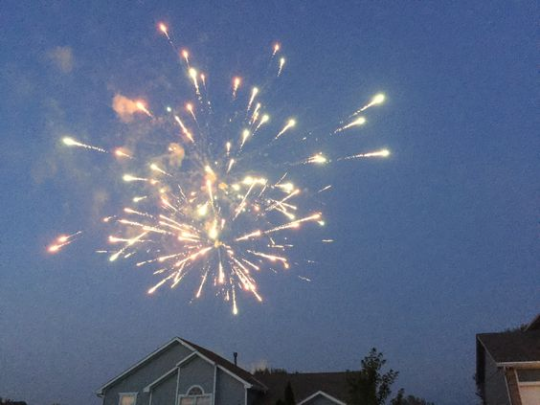
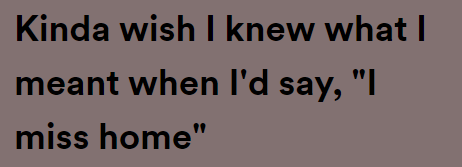

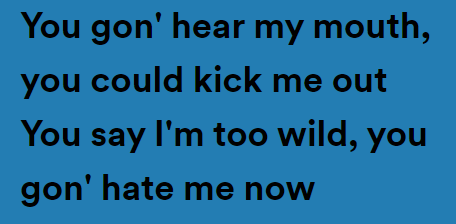


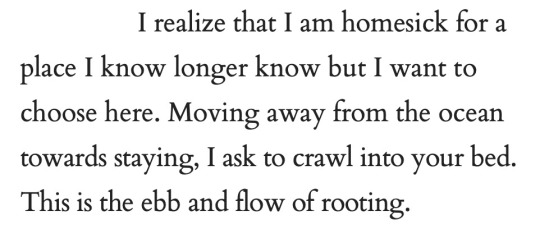

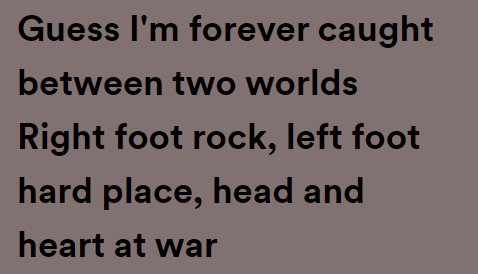

i don't know which one feels more like home. (the uncertainty or the chaos)
fireworks by jaedha godwin, pinterest // split by niki // post by @haykhighland (infinite thanks for letting me use your post // special by sza // images from pinterest // post-glacial by tori mccandless // "saga (i won't forget you when i'm gone)", andrei voznesensk - translated by @metamorphesque // split by niki // image from pinterest
#immigrant daughter#immigration#filipino#armenian literature#homesick#on location#on conflict#on the city#on growing up#poem#web weaving#web weave#spilled poetry#spilled thoughts#web weavings#webweaving#writeblr#indonesian music#filipino posting#filipino music#sza#city aesthetic#aesthetic#writing aesthetic#writing#poetry
1K notes
·
View notes
Text
I told my brother to deal with my mom and dad's relationship issues because I don't want to anymore. And he's mediated like one thing and he's stressed out, sad and it's affected him so much. And it's really put into perspective what I had to deal with so early on in life, in the middle of my important years, during studies and everything. And how much it affected me, my performance in school etc that even I didn't recognize.
I also realize that I use to be chronically late everywhere. To school. To events. To friends significant events like weddings. And I never understood at that time why I simply couldn't just leave earlier. Why couldn't I. And I realizrd just now that it was because I was overwhelmed. Chronically.
I am never late anymore. I'm nearly always early now. I just wish I had managed to cut stuff out that was affecting me earlier in life. But I didn't have the means then so there's not much I could have differently
27 notes
·
View notes
Text
passing the time filling my notes app with bad poetry and taking inventory of the blue of my veins instead of doing any of the things that actually need to get done
it’ll all make sense, one day.
27 notes
·
View notes
Text
Miguel is so you outgrew our little neighbourhood coded. So very we always knew it would be you. Big fish in a small pond, with even bigger ideas. Destined for the ocean. So, we knew you would be the one. we knew you would outgrow the shit and stink, why won't you let us celebrate you? He's so, stop looking back because we are too far gone. covered in the stench and you were meant to rise above it. every one of us grew into skeletons laid out like bear traps and you were the only one that grew out of it. out of sharp ribs and crooked spines. grew up. thinking about him getting that place in the academy, getting that job at alchemex and feeling on top of the world. And looking at all the little people, all the ghosts and ghouls who couldn't make it. yeah.
#miguel o'hara#miguel o'hara x reader#across the spiderverse#writing a fic about this#this is also so very eldest immigrant daughter coded#so i am projecting hard as usual
406 notes
·
View notes
Text

I remember the first time I ever listened to Ethel Cain a couple years ago I was stunned by her music. I was genuinely in awe of the narrative and aesthetic she had crafted. This photo was the first one I had seen aside from her album cover and I remember thinking that she had so much mystique around her. She had an allure to her persona and her music that I found enchanting and a sound that I couldn't find anywhere else. The first song I ever heard was Ptolemaea and I was terrified by the haunting screams, the voice of death, and the image she created; I loved it. I listed to the entire album that night and all I wanted was to know everything about this mysterious artist. I listened to her discography over the course of a couple months and the picture she painted of america felt both so far and so close to the life I lived. I think part of it is that I don't feel american because although I live here, this is not where me or my family are from and she helped me to understand what life is like for a "normal american". She made the ordinary life feel cinematic. The picture of an americana summer, hot, sweaty, lustful, violent captured my attention and made me understand and engage with this country in a way that I hadn't before. Just something on my mind, I wrote an essay about Preacher's Daughter, maybe if people see this I might post it, I think it's pretty good. Xxx
#ethel cain#preachers daughter#southern gothic#americana#ptolemaea#inbred#mother cain#golden age#carpet bed ep#immigrants#hayden anhedönia#american teenager#strangers#sun bleached flies#family tree#ethelcore#thoroughfare#western nights#a house in nebraska#hard times#gibson girl#august underground#televangelism#idk how tumblr works im new here
31 notes
·
View notes
Text
Countrywoman
“I’m not really Indian,” Jaya said. “I mean, I was born in Britain.”
“Obviously,” Max agreed. “You’re not even vegetarian.”
“I’m not really Indian,” Jaya said. “I’ve never even been to India.”
“I understand that, sweetheart, but you have to be understanding to those who don’t really know you.” Mother smiled. “People are very concerned about the immigration problem.”
“I’m not really Indian!” Jaya said.
“Please,” Theodore rolled his eyes, “don’t you pray to elephants?”
“I’m not really Indian,” Jaya said. “Why are they like this?”
“Jaya, what the fuck are you talking about?” Raine asked.
“I go to church!” Jaya complained. “I’m Odelia Chel’s daughter.”
“Nobility doesn’t cancel out brown skin, Jaya.”
“I’m not really Indian,” Jaya said. “I know, nobody cares, but it’s still true.”
“I don’t think it’s proportional,” Lilith mused. “Being less Indian doesn’t make you more British; it just makes you less Indian.”
Jaya considered this. “I forgot you’re Welsh.”
“Most people do.”
“I think I want to go to India,” Jaya said. “I mean, after the war is over.”
“I’ll go with you,” Anne said.
#this story mostly centers around the line “I forgot you were welsh”#india#immigrant daughter#creative writing#my writing#library of babel#unedited#original characters#my ocs#jayaverse
0 notes